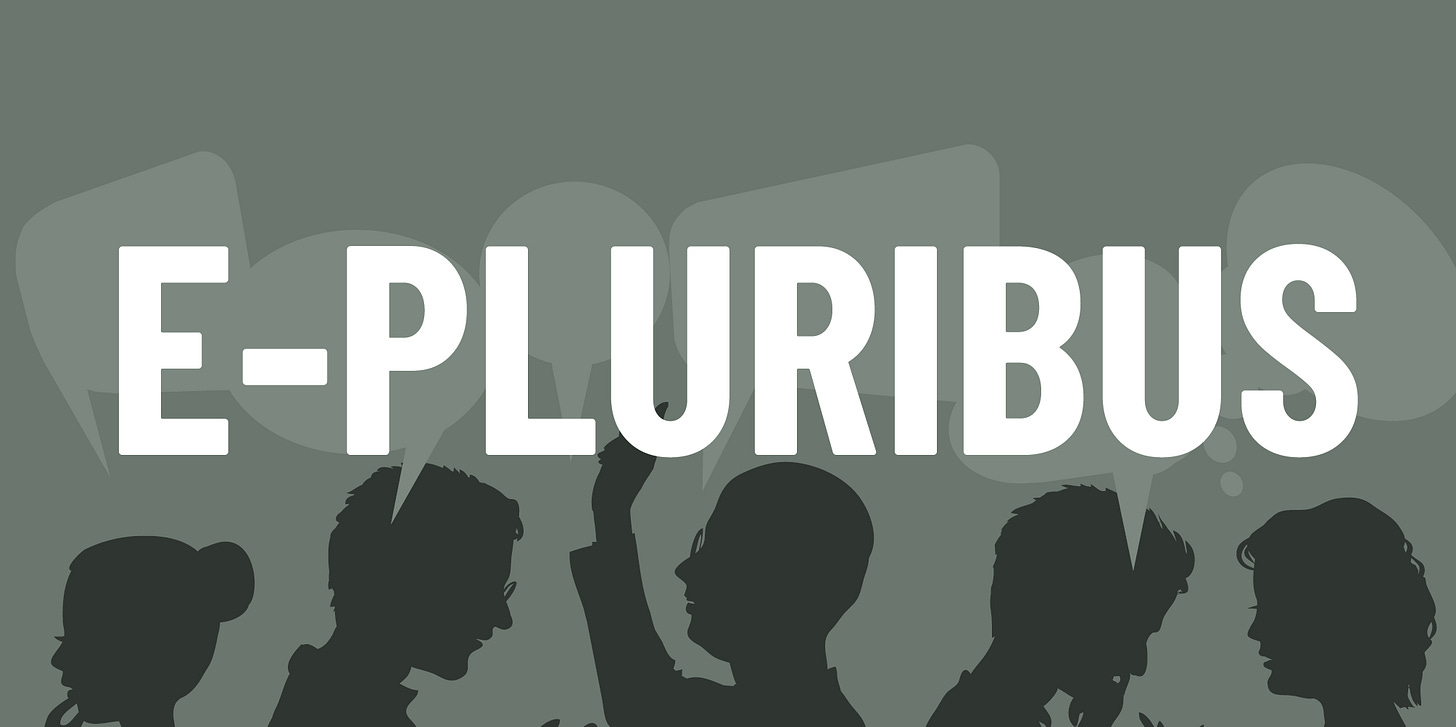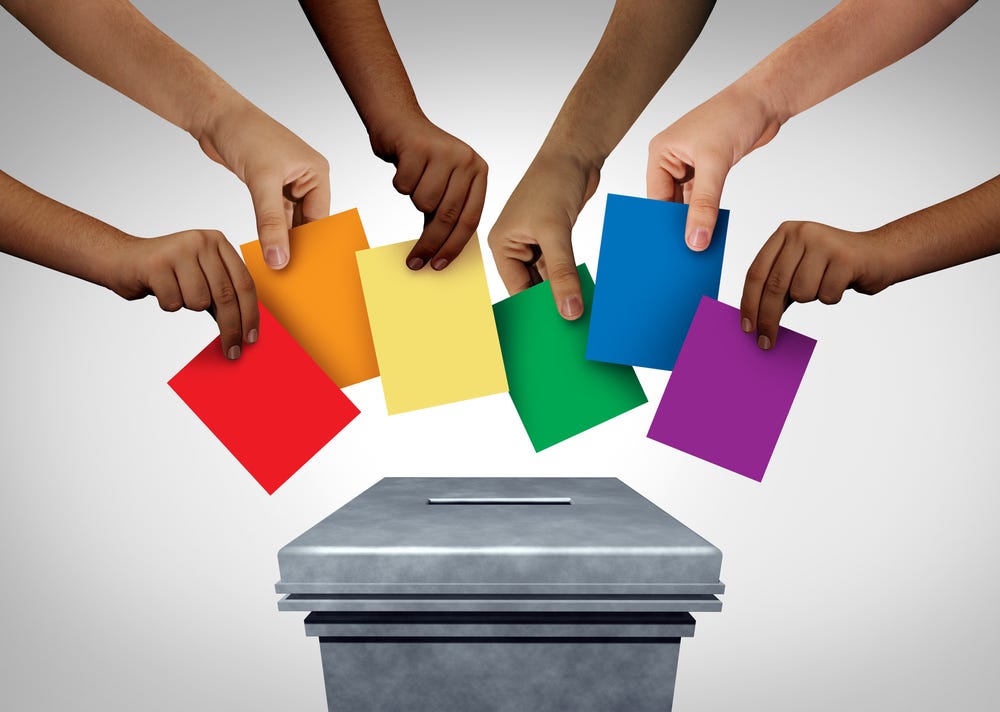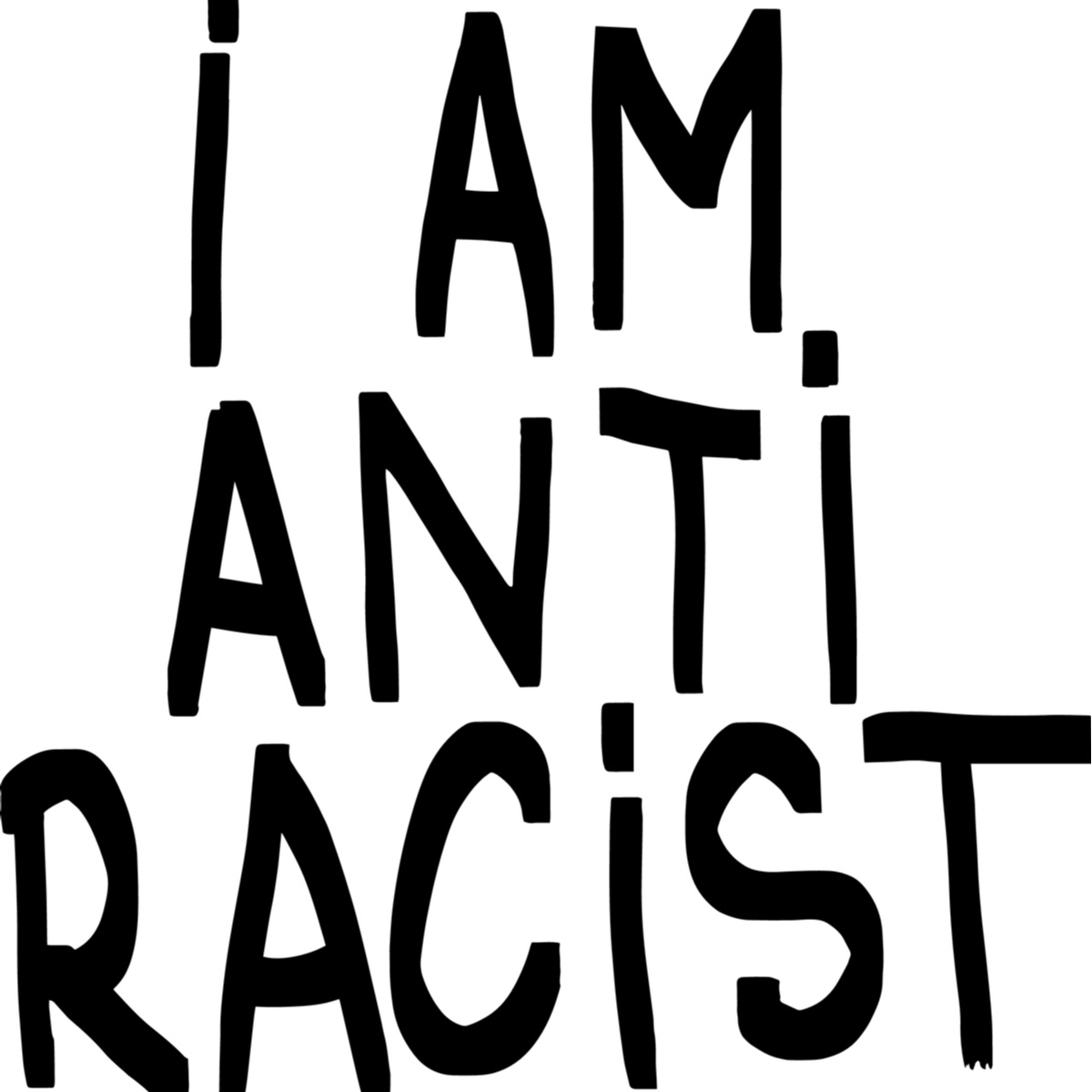E-Pluribus | May 24, 2022
Has identity politics worn out its welcome; real antiracism; and words mean things, but too often, different things to different people.
A round-up of the latest and best writing and musings on the rise of illiberalism in the public discourse:
Park MacDougald: The twilight of identity politics
At one time, identity politics was seen as the key to an ever-increasingly bright future for the Democrats. At Unherd, however, Park MacDougald says the Democratic left put too many of its eggs in the anti-Trump basket and now is unprepared for the internecine conflict currently raging.
In part, the triumph of identity politics was the result of events, most notably the murder of George Floyd and the summer of riots and protests that followed it, which made progressive narratives about systemic racism and police brutality more plausible to larger numbers of people. In part it was because Trump, by railing against “political correctness” and devoting his considerable showman’s talent toward scandalising liberal sensibilities, had made even the most dyed-in-the-wool Marxist critiques of race and gender politics seem toxic by association with him.
But mostly this victory was because, as Christopher Caldwell has observed, identity politics (or “civil rights, broadly understood”) had, by the Trump years, become the “reconciler-of-contradictions” within the Democratic coalition. In America’s emerging party alignment, identity politics is the “glue” holding together the New Economy oligarchs, white-collar professionals, disaffected graduate students, and minority voters that make up Team Blue. As long as Trump was in office, dissent from it would always appear, to the Left, as something akin to wartime treason.
But with Trump gone — for now — we are beginning again to hear some grumblings. Facing the prospect of an electoral bloodbath in November and potential disaster in 2024, figures from the centre of the Democratic Party such as Ruy Teixeira, Jonathan Chait, and Matthew Yglesias have declared a more-or-less open war on the party’s activist-NGO Left wing, which they accuse of tarnishing the Democratic brand by associating it with a host of radical and unpopular positions.
Read it all.
Kay S. Hymowitz: How Really to Be an Antiracist
Ibram X. Kendi has built his brand around “anti-racism,” but Kay Hymowitz writes at City Journal about a much more basic way to be anti-racist — teach children how to read, which will open their eyes and their futures more than buzzwords or trendy social justice campaigns ever could.
The tragedy for black children and their families, as well as a nation trying to reckon with racial disparities rooted in its own history, can’t be overstated. If you want to make sense of racial gaps in high school achievement, college attendance, graduation, adult income, and even incarceration, you could do worse than look at third-grade reading scores. Three-quarters of below-proficient readers in third grade remain below proficient in high school. Before third grade, children are learning to read; after that, they are reading to learn, in one well-known formulation. All future academic learning in humanities, social sciences, business, and, yes, STEM fields depends on confident, skilled reading. “The kids in the top reading group at age 8 are probably going to college. The kids in the bottom reading group probably aren’t,” as Fredrik deBoer, the iconoclastic author of The Cult of Smart, has put it. And the absence of a sheepskin is hardly the worst of it. Upward of 80 percent of adolescents in the juvenile justice system are poor readers, according to the Literacy Project Foundation. Over 70 percent of inmates in America’s prisons cannot read above a fourth-grade level…
The irony would bring tears to the eyes of Martin Luther King, Jr. Before the Civil War, most Southern states had laws forbidding slaves from reading or writing. Enslaved men and women were known to risk whippings and death in order to learn their letters, sometimes with the aid of a sympathetic white but frequently on the strength of their own determination. “Once you learn to read, you will be forever free,” the most famous of those readers, Frederick Douglass, promised. What would he, or King, make of an education system that leaves more than half of twenty-first-century black kids barely literate?
[ . . . ]
Still, signs of change are evident. In 2013, legislators in Mississippi provided funding to start training the state’s teachers in the science of reading; I’ve already noted their encouraging results. Other states, including Florida, Colorado, and Tennessee, are gesturing toward taking reading science more seriously. And David Banks, New York City’s new schools chancellor, canceled his predecessor’s dismissal of the “white worship of the written word.” Teachers have been “teaching wrong” for 25 years, Banks said. “‘Balanced literacy’ has not worked for Black and Brown children. We’re going to go back to a phonetic approach to teaching.”
Read it all here.
Seth Moskowitz: When Words Lose Their Meanings
From our beginning, Pluribus has stressed the importance of language in the struggle against illiberalism. Seth Moskowitz at Persuasion says both the left and right are guilting of co-opting words and concepts to use as cudgels rather than tools for communicating ideas in good faith efforts to transform society.
Take the term “white supremacy.” For most people, white supremacy refers to a) the belief that white people constitute a superior race; and b) political and societal arrangements predicated on this explicitly racist idea. But this straightforward definition has gone out of style. Activists have found that there is little political incentive to maintain such a tight definition when, by loosening it a little, you can shame and humiliate your adversaries. And so activists loosened it. Now, standardized testing is white supremacy; criticizing identity-based politics is white supremacy; “worship of the written word” is white supremacy.
[ . . . ]
The political right caught on, and has started redefining words for purposes of its own. Until a few weeks ago, the term “groomer” referred to a person who built a relationship with a child in order to sexually exploit and abuse them. But now, merely opposing conservative efforts to ban classroom discussion related to sexual orientation or gender identity supposedly makes you a groomer. As the Florida governor’s press secretary wrote in March, “If you’re against the Anti-Grooming Bill, you are probably a groomer or at least you don’t denounce the grooming of 4-8 year old children. Silence is complicity.”
[ . . . ]
The unsurprising consequence is that words have come to mean different things to the left and the right. That is why, when a recent segment on MSNBC’s Morning Joe featured a poll showing that over half of Republican voters would not find it a “major problem” if a “candidate is accused of” making anti-semitic, racist, or homophobic remarks, I was less alarmed than the host, who called these voters “fascist” (itself a fantastic example of a word that has been mangled by concept creep)…
In combination, the increasing malleability of words and the tendency towards maximalist accusations are degrading our public square. The most extreme activists might find this degradation and polarization good for their ends, but for the exhausted majority, it is a menace. When words lose their meanings, communicating with and understanding anybody on the opposite political team becomes more difficult. Democrats and Republicans are left talking at and about their adversaries, but never to them.
Read the whole thing.
Around Twitter
Excerpts from a Glenn Greenwald thread on a New York Magazine (no conservative publication) article on the left and “disinformation”:
Here’s a tongue-in-cheek thread on how to handle wokeness regret:
And finally, via Matt Taibbi, one man’s free speech is another man’s “laissez-faire attitude about content moderation”:











